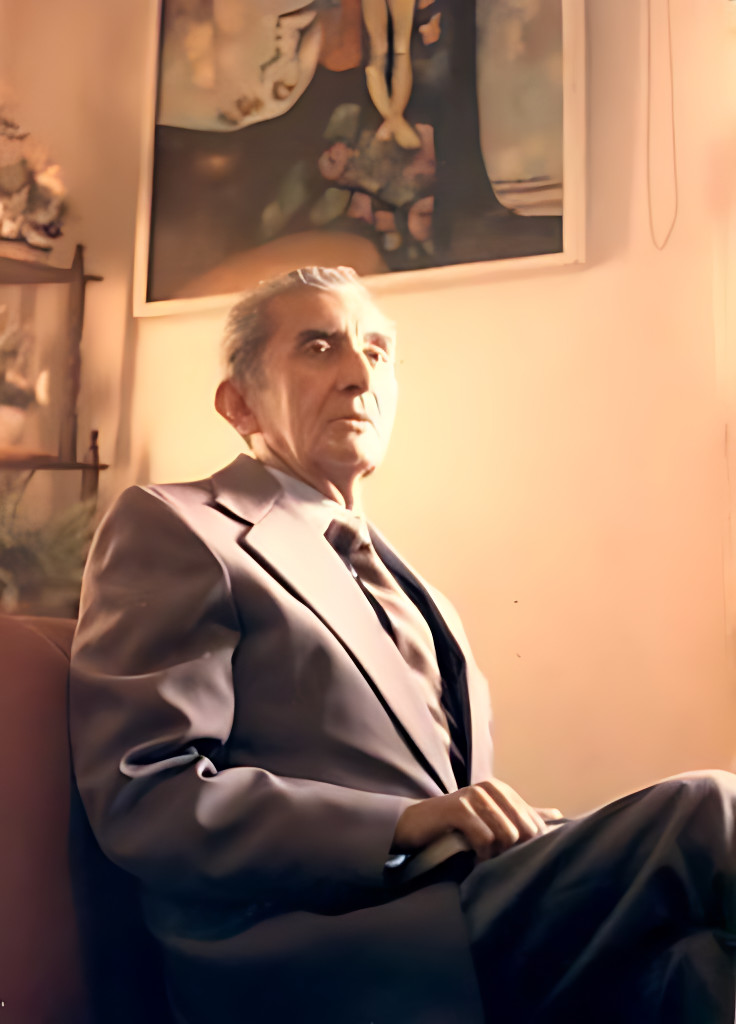Jorge Vanegas Muñoz (Guayaquil, September 6, 1923 – ibidem, April 6, 2003) the distinguished Ecuadorian poet, novelist, and journalist, left an enduring literary legacy that transcends borders. His notable works, including “Los sangrientos estambres,” “Esqueleto en abril,” and “Los escarabajos de un Virey,” stand as testaments to his poetic prowess and his commitment to the art of verse. In 1975, he received the prestigious National Poetry Contest Ismael Pérez Pazmiño award from the esteemed Guayaquil newspaper “El Universo.” Beyond his literary contributions, Jorge’s advocacy for peace, as seen through his participation in the Committee of Ecuadorian Writers for Peace and representation at the World Congress in Stockholm, reflects his dedication to using poetry as a force for harmony in a world marked by division. His life’s work continues to inspire and captivate readers, solidifying his place in Ecuador’s literary pantheon and beyond.
Introduction
Jorge Vanegas Muñoz, born on September 6, 1923, in Guayaquil, Ecuador, was a renowned poet, novelist, and journalist. His literary journey, filled with passion for poetry and a commitment to peace, left an indelible mark on Ecuador’s literary landscape.
Early Years
Born to Rodolfo Vanegas Muñoz and Claudina Muñoz, Jorge lost his mother at the age of 12. His early education took place in Guayaquil, initially at the Salesian School Cristóbal Colón, from which he was expelled, and later at Vicente Rocafuerte School. Even during his school days, he began publishing poems in magazines like “Nosotros” and “Juventud” at Vicente Rocafuerte School. He also contributed to various Ecuadorian print media, including El Telégrafo, La Nación, and El Universo.
The “Madrugada” Literary Movement
Jorge Vanegas Muñoz was an integral part of the “Madrugada” literary movement, which emerged in 1944. This movement brought together poets and writers from various regions of Ecuador. The movement was named after the short-lived literary magazine “Madrugada,” which circulated during that time. One of the founders of this group was the Cuenca-based writer César Dávila Andrade.
Advocate for Peace: The Committee of Ecuadorian Writers
Jorge was not only a poet but also an advocate for peace. He co-founded and was a member of the Committee of Ecuadorian Writers for Peace. In 1958, alongside poet and writer Rafael Díaz Icaza, who presided over the committee, he represented Ecuador at the World Congress in Stockholm for Disarmament and International Cooperation. This event aimed to address the issues arising from the Cold War.
A Life Immersed in Poetry
Rafael Díaz Icaza described Jorge as someone whose every moment was steeped in poetry: “Mañana, tarde y noche de toda su existencia, Jorge Vanegas respira un aire de poesía: trabaja para ella y dentro de ella con cuidadosa y paciente voluntad de santero, tallador, iluminador de imágenes.”
After his journey to Stockholm, Jorge lived in various European cities, including Paris, Naples, Rome, Barcelona, and Madrid.
The Journalist
Jorge Vanegas Muñoz was not limited to the world of poetry; he also made his mark in journalism. He worked as a correspondent in North Africa and the Middle East, demonstrating his versatility and deep connection to global issues.
Personal Life
In 1967, Jorge married Gloria González and settled in Guayaquil, where he continued to nurture his literary passions.
Literary Contributions
Jorge Vanegas Muñoz was the director of the poetry magazine “Lagar” and a member of various art and culture organizations, including the Municipal Patronage of Fine Arts in Guayaquil and the House of Ecuadorian Culture, where he also served as the director of the editorial department.
Legacy and Awards
Jorge Vanegas Muñoz passed away in Guayaquil on April 6, 2003, at the age of 79. His legacy as a poetic activist lives on. He believed that poetry could be a guiding light toward lasting peace, and his works, including “Los sangrientos estambres,” “Esqueleto en abril,” and “Los escarabajos de un Virey,” continue to inspire readers. In 1975, he was awarded the National Poetry Contest Ismael Pérez Pazmiño by the Guayaquil newspaper “El Universo.”
Part of his literary heritage can be found in the collection “Poemas escogidos,” which was published in 1976 by the editorial department of the House of Ecuadorian Culture, Guayas Chapter, in Volume 19 of the “Colección Letras del Ecuador.” Jorge Vanegas Muñoz’s life and work remain a testament to the power of poetry and the pursuit of peace through art.

